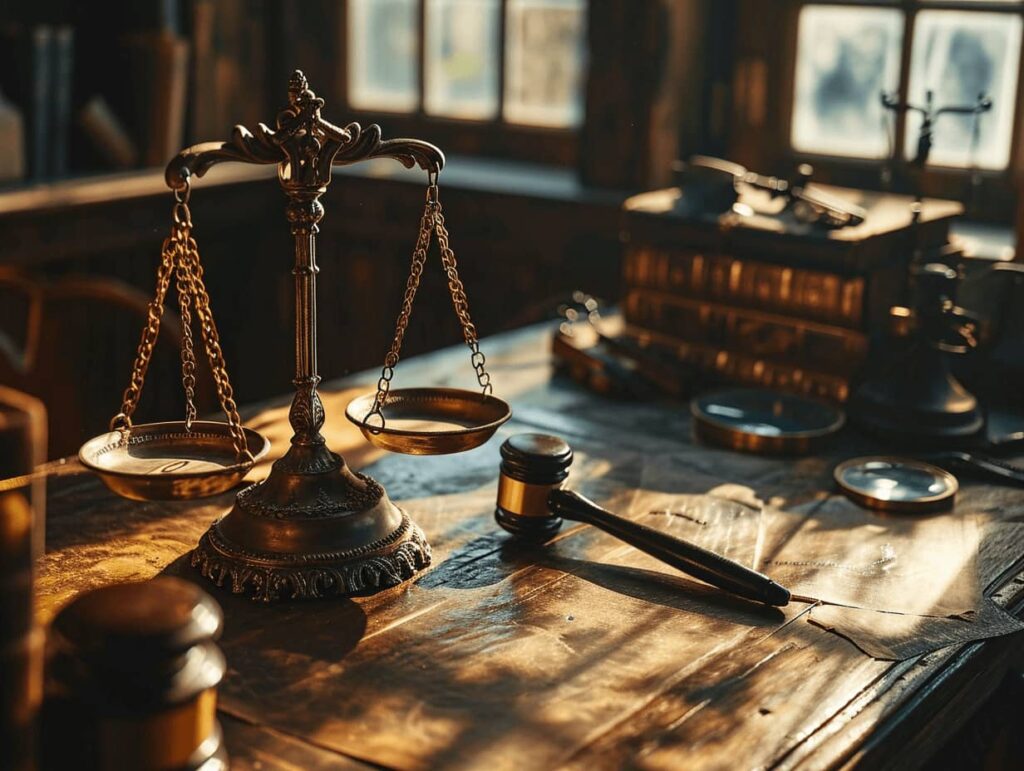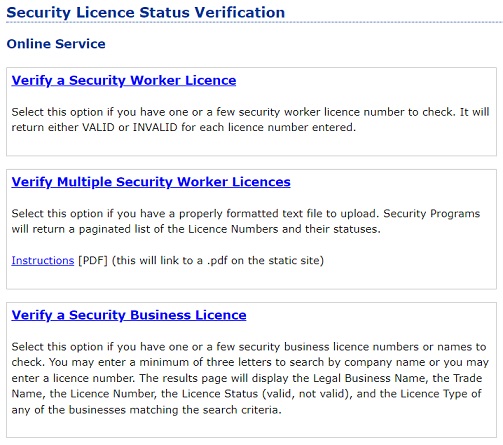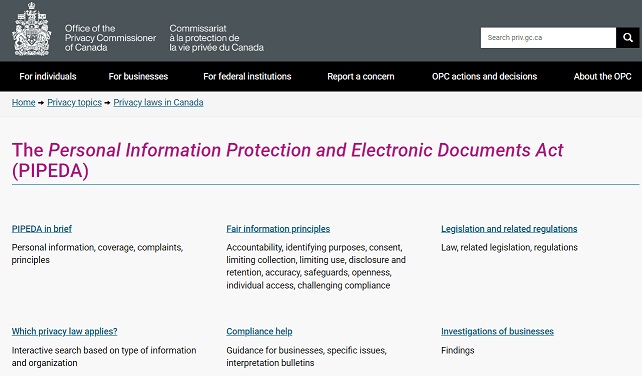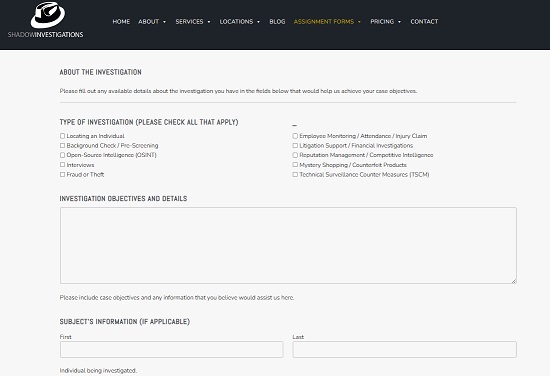
What Can a Private Investigator Do and Not Do in Canada in 2024?
Have you ever wondered what a private investigator can and cannot do in Canada?
Perhaps you’re considering hiring one, or you’re just curious about the mysteries and limitations of the profession.
In this article, we’ll tackle the questions you may have and clear up any misconceptions.
For over three decades, we have had experience investigating a wide variety of cases and understanding the ins and outs of this industry.
From legal boundaries, evidence gathering, and confidentiality concerns to costs and hiring processes – we’ll give you a behind-the-scenes tour of what being a private investigator in Canada truly means.
- What Can a Private Investigator Do and Not Do in Canada in 2024?
- What Can a Private Investigator Do in Canada?
- Legal Boundaries: What a Private Investigator Cannot Do
- Evidence Gathering: What a PI Can Legally Do
- Confidentiality and Privacy
- Relevance and Application of Investigation Results
- Hiring Process and Costs
- What Happens After the Investigation?
- The Impact of a Professional Investigation
- About the Author
What Can a Private Investigator Do in Canada?
Private investigators in Canada operate under a strict legal framework, gathering data through surveillance, undercover operations, background and financial checks, asset searches, OSINT, interviews, forensics, polygraph tests, and much more.
Legal Boundaries: What a Private Investigator Cannot Do
When it comes to a private investigation, you might wonder, “Just how much can investigator’s do?”
Knowing that private investigators in Canada operate under a strict legal framework is crucial. They can’t just do anything to obtain information.
Private investigators must obey the law, just like you. Here are some of the critical things that private investigators in Canada cannot legally do:
1. Operate Without Up-to-Date Professional Licenses:
Private investigators and the private investigation companies they work for can only operate with a valid, up-to-date license issued by the government. In BC, you can verify these security worker licenses and security business licenses at the government of BC website.

2. Violate an Individual’s Privacy:
Private investigators cannot conduct surveillance in a way that would infringe upon someone’s reasonable expectation of privacy. They must obtain evidence from a public vantage point and cannot trespass on private property.
3. Harass the Subject of Investigation:
A private investigator cannot continuously bother, follow, or stalk a person in a way that constitutes harassment.
4. Wiretapping Without Consent:
While private investigators can record conversations in which they are participants, they cannot wiretap phone calls without the consent of at least one party involved. Doing so could result in serious legal consequences.
5. Access Personal Financial Information:
Private investigators do not have the legal authority to access personal bank records or credit information. The only instance where this might be possible is if they are working with an attorney and have obtained a subpoena or court order or have the individual’s consent to do the searches.
6. Acquire Medical Records:
Personal medical records are confidential and protected by law. Private investigators cannot access an individual’s medical records without consent or a court order.
7. Hack into Personal Accounts or Devices:
It is illegal for private investigators to hack into or install unauthorized software on phones, computers, or any electronic device. Additionally, they cannot gain access to a person’s email, social media, or other online accounts. Even if they have the skills to do so, they would be breaking the law and could face prosecution if caught.

8. Retrieve Phone Records:
Federal and provincial laws protect phone records. Private investigators can only access another person’s phone records with legal permission.
9. Tamper with Mail:
Opening, reading, or tampering with your mail is illegal for a private investigator. Authorities treat such a federal offense with the utmost seriousness.
10. Pose as Law Enforcement:
Impersonating a law enforcement officer is a criminal act. Private investigators are not police officers, and it’s illegal for them to pretend to be. They cannot use symbols or language that might lead someone to believe they are a law enforcement officer.

Private investigators work within legal means to gather information, ensuring every step they take complies with Canadian law.
So, while private investigators have more tools and resources at their disposal compared to the average person, they are bound by the laws and regulations of Canada.
This adherence to law and ethics ensures that the work of private investigators remains credible, respected, and above board.
Evidence Gathering: What a PI Can Legally Do
Now that we’ve established the boundaries, you might think, “So, how exactly do private investigators obtain their information?” Great question!
Private investigators have a range of legal powers and expertise that help them perform their roles efficiently. Here are some of the main things a private investigator can do within the confines of Canadian law:
1. Surveillance:
Private investigators can observe a person’s activities in public spaces to gather information. These observations include following individuals, capturing video and photographic evidence, and noting interactions and behaviors.
Surveillance is an effective solution for obtaining evidence in:
- Insurance Fraud | Employee Disability Fraud Investigations
- Employee Misconduct | Corporate Investigations
- Spousal | Infidelity Cases
- Guardianship | Child Custody Cases
- Alimony | Spousal Support | Child Support Payment Cases
- Teen Activity Check | Wellness Check Cases

2. Background Checks:
Private investigators can run background checks on individuals to collect information on their past, including criminal records, employment history, and other personal details.
3. Interviews:
They can interview individuals and take witness statements associated with the case, such as friends, family, neighbors, or colleagues, to gather more information.
4. Record Searches:
They can access and review public records and databases to gather helpful information for their investigation. This data could include property records, business registrations, and court documents.
5. Open-Source Intelligence (OSINT) | Social Media Research:
They can scour social media platforms, online databases, and the general internet for public information relevant to their OSINT investigation.
6. Litigation Support:
Private investigators can assist law firms with their cases, for example, by finding and interviewing potential witnesses or serving legal documents.
7. Fraud Investigations:
They can investigate insurance, corporate, and personal fraud cases, following the trail of fraudulent activity to discover the truth.
8. Undercover Work:
Private investigators may assume a false identity (without impersonating law enforcement) in an undercover operation to get close to an individual or organization and gather information.
9. Asset Searches:
If legally authorized, they can conduct asset searches to find properties, vehicles, and other assets of a person or business.
11. Missing Persons Investigations:
Private investigators can assist in locating missing persons, tracing their last known locations, and following leads in an attempt to determine their whereabouts.

12. Skip Tracing:
Skip tracing involves locating individuals who have ‘skipped’ out on their obligations, such as debtors, to serve them with legal documents.
13. Digital Forensics:
Some private investigators specialize in digital forensics, recovering data from computers and other electronic devices to gather and analyze evidence.
14. Cyber Investigations:
They can investigate instances of cybercrime such as identity theft, online harassment, and unauthorized data breaches.
15. Risk Assessment:
They can help businesses identify potential risks and vulnerabilities, whether security-related, financial, or reputational.
16. Security Consultations:
Private investigators can also advise on improving security measures for businesses or individuals.
17. Insurance Investigations:
They can help insurance corporations to investigate injury claims to confirm their legitimacy. These cases include worker’s compensation, personal injury, and accident claims.

18. Due Diligence:
Private investigators can conduct due diligence investigations into businesses’ operations and financial standing in cases of potential investments or acquisitions.
19. Workplace Investigations:
Private investigators can help organizations with internal workplace investigations related to harassment, discrimination, violations of company rules, and other workplace issues.
20. Mystery Shopping:
In some instances, private investigators act as customers to evaluate the quality of service provided by businesses.
In short, private investigators use a combination of legal databases, surveillance, interviews, online research, and fieldwork to gather information. They don’t take shortcuts or break the laws; instead, they apply their expertise and experience to find the truth professionally and ethically.
Confidentiality and Privacy
We get it – your situation might be sensitive and personal. You’re probably wondering, “If I share my story with a private investigator, how can I be sure it stays private?” Let’s put your mind at ease.
Privacy and confidentiality are not just vital in private investigations – they’re mandatory.
Private investigators are bound by privacy laws like any other profession dealing with sensitive information. The Personal Information Protection and Electronic Documents Act (PIPEDA) dictates how they must handle personal data. Breaching these laws can result in severe penalties, so private investigators take these laws very seriously.

When you share information with a licensed private investigator, that information becomes part of a confidential case file. This file is secure and accessible only to those working on your case. Any information you provide is used strictly for the investigation.
Moreover, the results of a case are confidential as well. The details uncovered during an investigation are only shared with you, the client. These results are not shared with third parties unless required by law or with your explicit consent.
Lastly, confidentiality doesn’t end when the investigation does. Private investigators are obligated to maintain confidentiality even after the case is closed.
So rest assured, when dealing with a licensed private investigator, your privacy and confidentiality are well-protected. They are professionals who understand the importance of discretion and respect for your personal information.
Relevance and Application of Investigation Results
You might be thinking, “If I hire a private investigator, how can I actually use the information they find?”
The results from a private investigation are more than just a collection of facts. They’re a tool – a tool you can use in several ways. Here’s how.
Firstly, in legal situations, the findings of a private investigator can be used as evidence in court.

Investigators are skilled at gathering information lawfully and ethically.
For a court to accept evidence, a private investigator must acquire it legally. So, if you’re dealing with a legal dispute, the work of a private investigator can be a game-changer.
Secondly, investigation results can help you make informed decisions.
Knowing the facts gives you an upper hand, whether you’re considering a business partnership, divorce, or dealing with a delicate personal matter. It helps you see the whole picture and make decisions in your best interest.
Finally, if you’re concerned about fraud or scams, a private investigator can help there too. They can verify the legitimacy of an entity or individual or uncover fraudulent activities, which can save you from financial loss and unnecessary stress.
The primary objective of any private investigation is to uncover the truth.
It’s about helping you uncover facts so that you can move forward with confidence. Whether it’s a court case, a business decision, or a personal matter, the information a private investigator provides can be the key to resolving your dilemma.
Hiring Process and Costs
You may wonder, “What’s involved in hiring a private investigator, and how much will it cost me?” Let’s tackle these concerns.
The hiring process for a private investigator starts with a consultation, where you get to share your situation and goals.
The investigator will ask some questions to better understand your needs. It’s a great idea to ask questions about their experience, methods, and what you can expect from the process. It’s a two-way conversation aimed at ensuring a good fit.
Once both parties agree to proceed, you sign a contract and submit an intake form with the case details. This contract outlines the scope of the investigation, confidentiality clauses, fees, and other essential details. It’s your assurance that everyone understands and agrees to the terms of the case.

Now, let’s talk about the cost.
It’s hard to give a one-size-fits-all answer here because the cost of a private investigation can vary. It depends on the case’s complexity, duration, and the methods required.
Reputable private investigators are transparent about their fees. They’ll explain the cost structure to you upfront, so there are no surprises later.
A word of caution here – while cost is an important factor, it shouldn’t be the only thing you consider. Remember that you’re paying for expertise and, often, sensitive services. Being cheaper isn’t always better. You want a professional who will handle your case diligently and ethically.
Our Costs of Hiring a Private Investigator in Canada article goes into further detail about the types of services, their prices, and tips for reducing fees.
Next is the execution phase.
The execution phase is where the investigator gets to work, employing various methods to gather the information you need.
They might conduct surveillance, interview people, perform background checks, or retrieve records. Every step taken is legal, ethical, and strategic, aimed at effectively reaching the investigation’s goal.
Throughout the process, the investigator will maintain communication with you.
They’ll update you on progress, possibly sharing preliminary findings or asking for additional information. Remember, this is a partnership; open communication is vital to a successful outcome.
Finally, there’s the reporting phase.
Once the investigation is complete, the investigator compiles their findings into a detailed, organized report. This report will present the evidence collected, interpret the results, and provide any relevant recommendations.
The investigation process is a cycle of planning, executing, communicating, and reporting.
It’s a meticulous process managed by a professional committed to delivering quality results. It’s all about providing clarity, answers, and peace of mind.
So, whether you’re looking to resolve a personal matter or a business issue, you can trust the process and feel confident in hiring a private investigator.
What Happens After the Investigation?
Once a private investigator has wrapped up their work on your case, you might wonder, “What comes next?” The end of the investigation doesn’t mean the end of their commitment to you.
First, you’ll receive a detailed report summarizing the investigator’s findings.
This report will lay out the information they’ve uncovered, ensuring you can easily understand the results of their work. The investigator will make every effort to deliver clear, concise information, enabling you to make informed decisions.
Suppose new information surfaces after the investigation concludes. In that case, a case might need reopening, or a new line of inquiry may be required. The investigator will stand ready to help you navigate these situations.
Remember, the private investigator’s role is to offer support and assistance throughout the process. Even after the investigation is over, their commitment to your case continues.
They will ensure you understand the results, know how to use them effectively, and provide guidance for any new developments. So you can rest easy, knowing you’re not alone in this.
The Impact of a Professional Investigation
You can make more informed decisions when you have accurate, timely, and actionable insights.
Whether settling a personal issue, ensuring a potential business partner is trustworthy, or resolving doubts about an employee’s behavior, accurate information acts as your compass. It empowers you, gives you control, and enables you to navigate confidently.
In an age where information is power, being left in the dark could cost you.
Personal disputes left unresolved can steal your peace of mind. Business decisions on shaky grounds could lead to financial losses or damaged reputations.
In these situations, the role of a private investigator becomes vital.
They bring clarity where there’s confusion, knowledge where there’s ignorance, and truth where there’s doubt. By helping you gather the facts and evidence for legal proceedings, a private investigator enables you to take control of your circumstances.
For a complimentary, obligation-free consultation, please get in touch with us at 604-657-4499, info@shadowinvestigationsltd.ca, or fill out our contact form below with your preferred contact method and a brief overview of what you would like assistance with. We keep all information confidential and only use contact information to respond to inquiries.
"*" indicates required fields
About the Author

